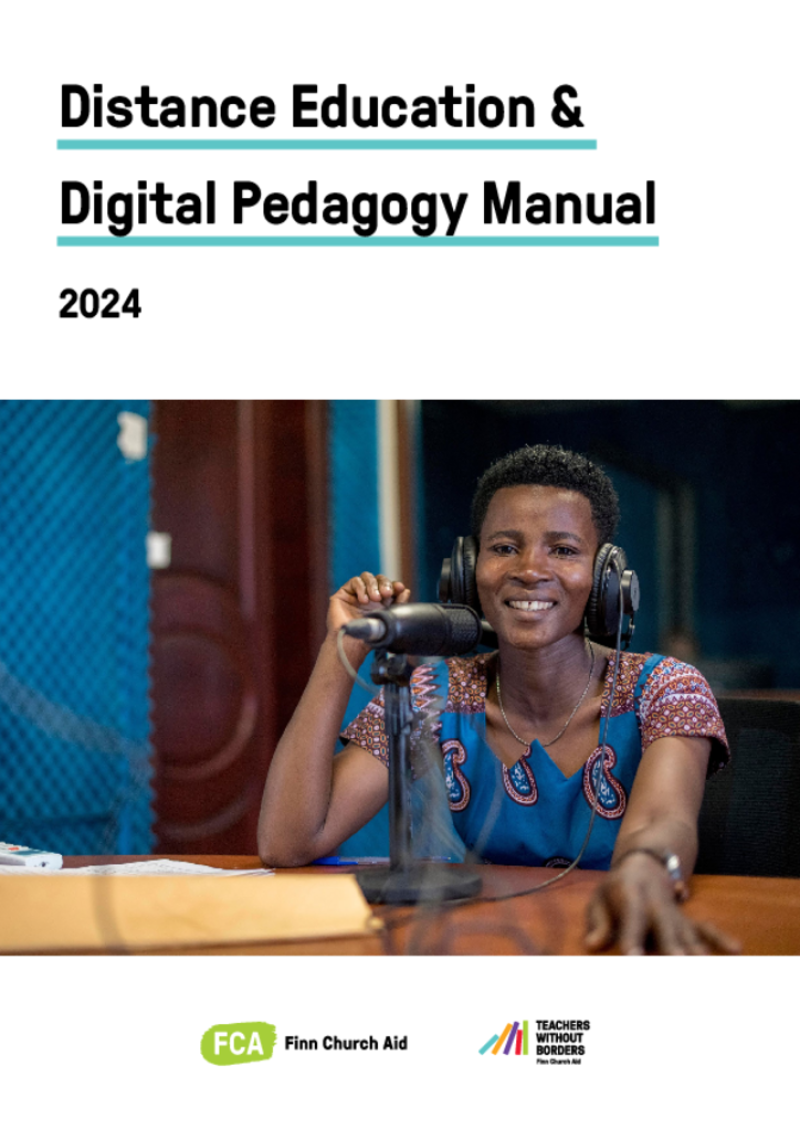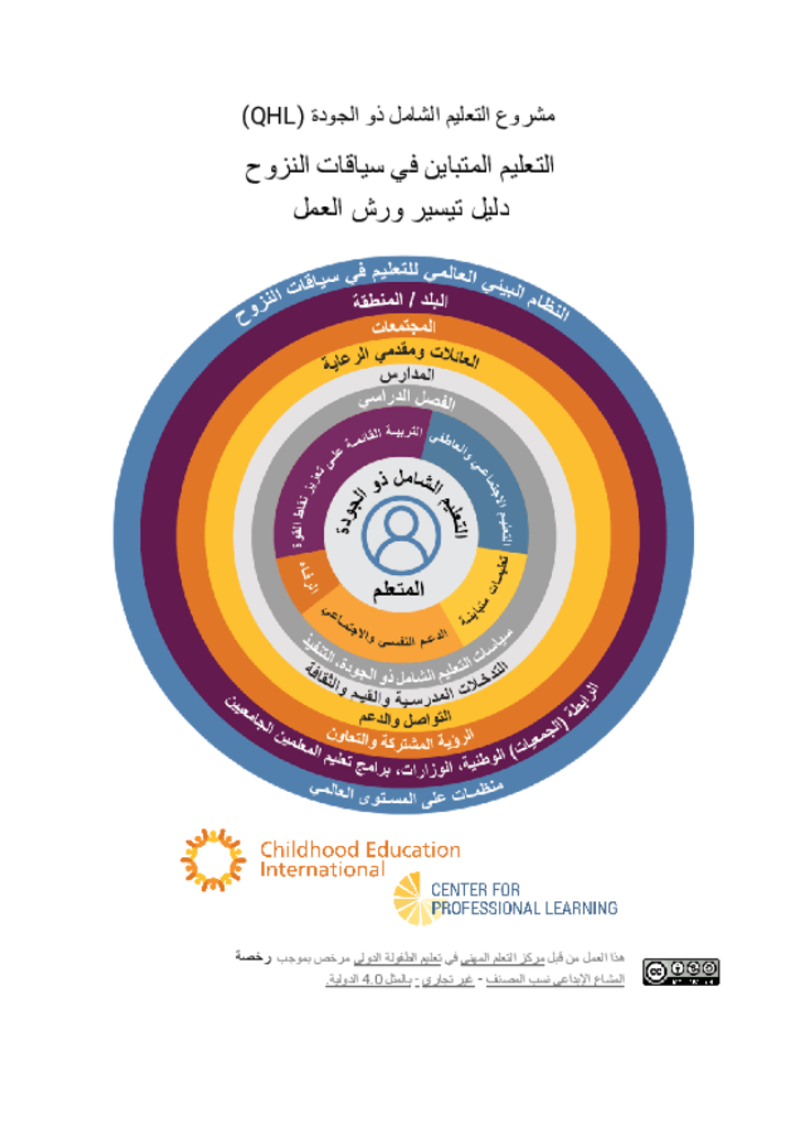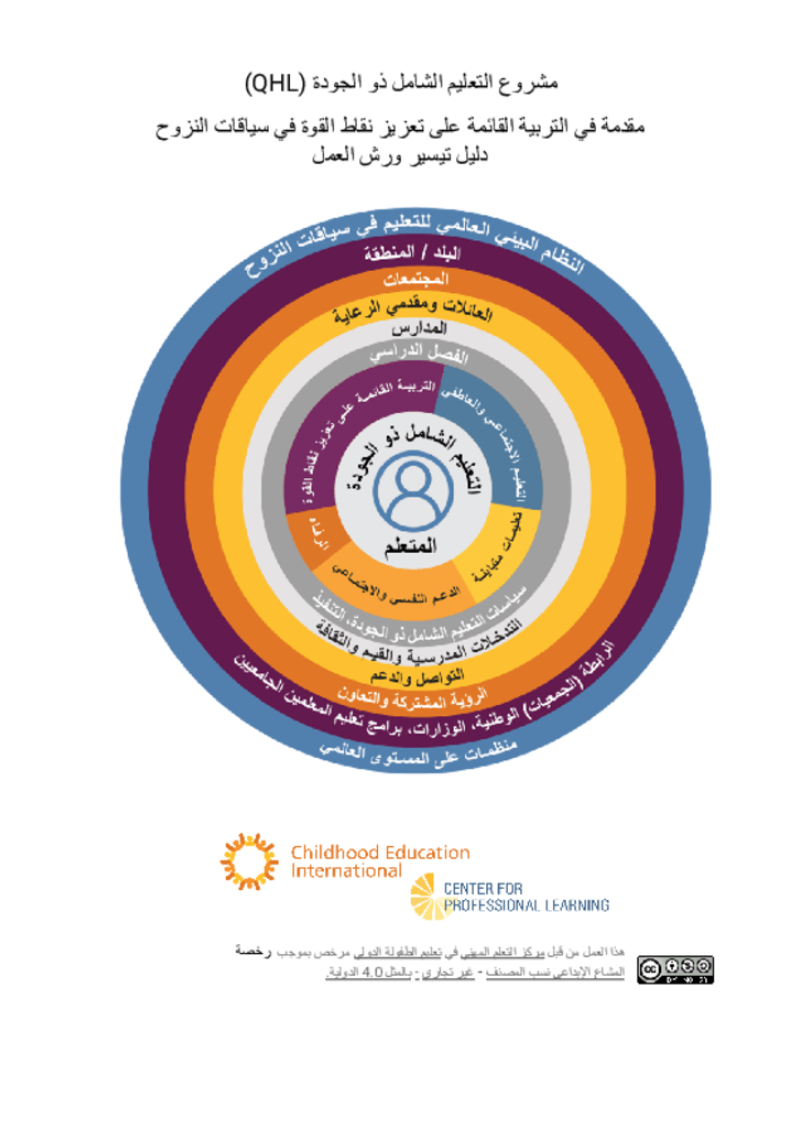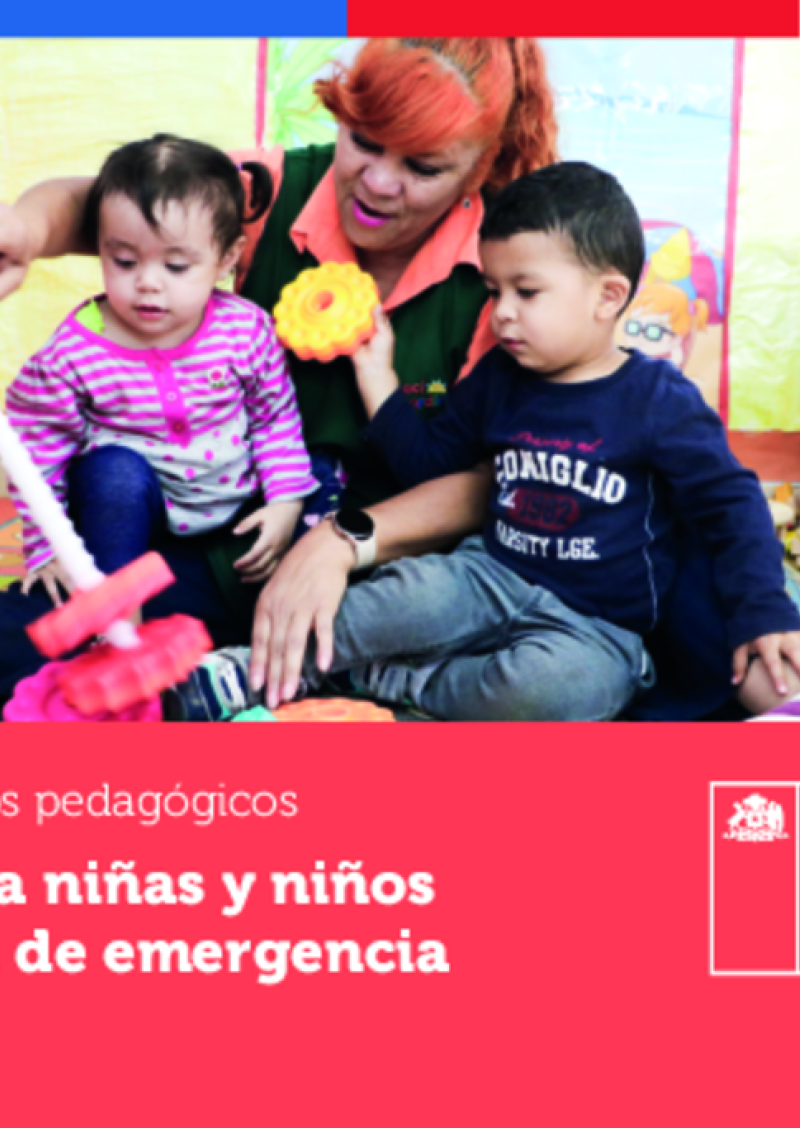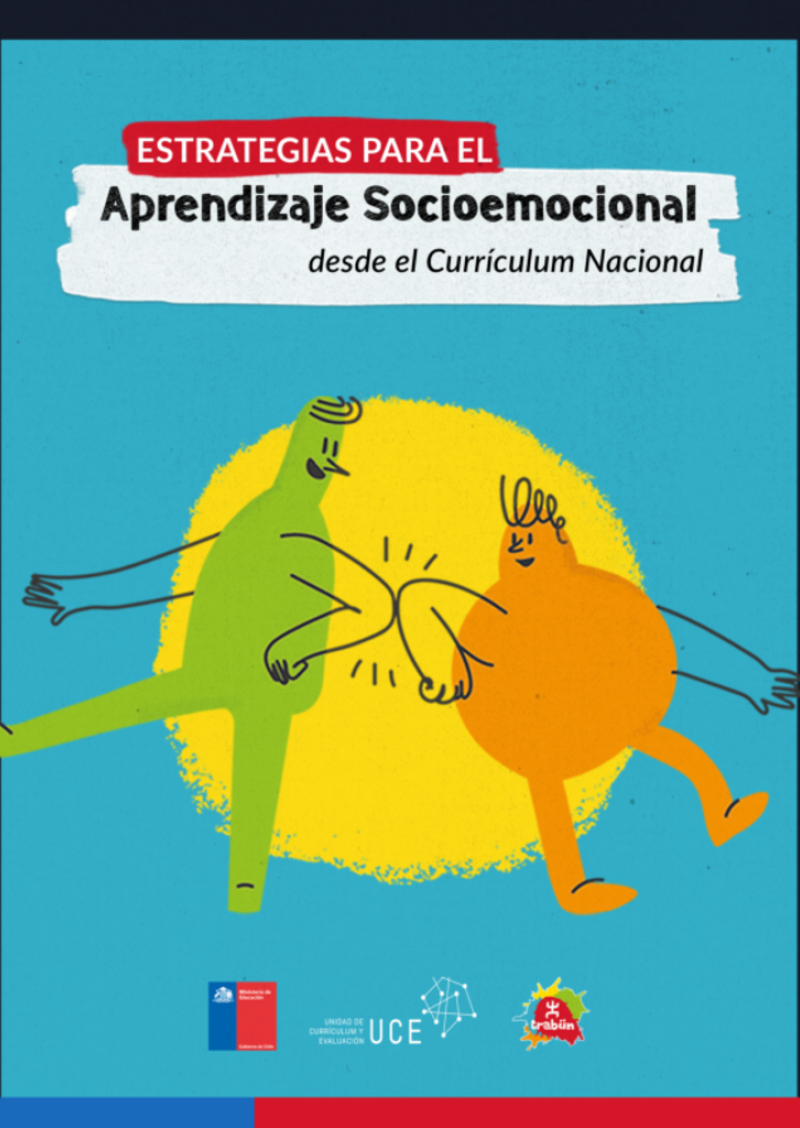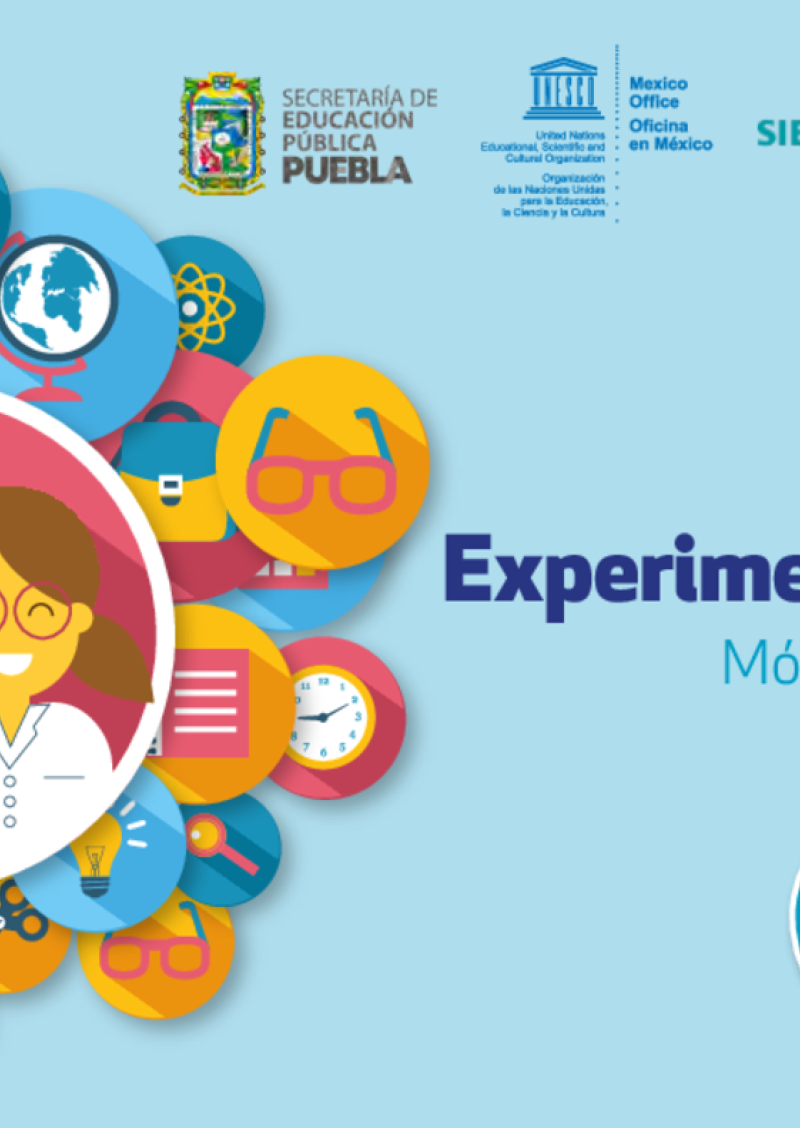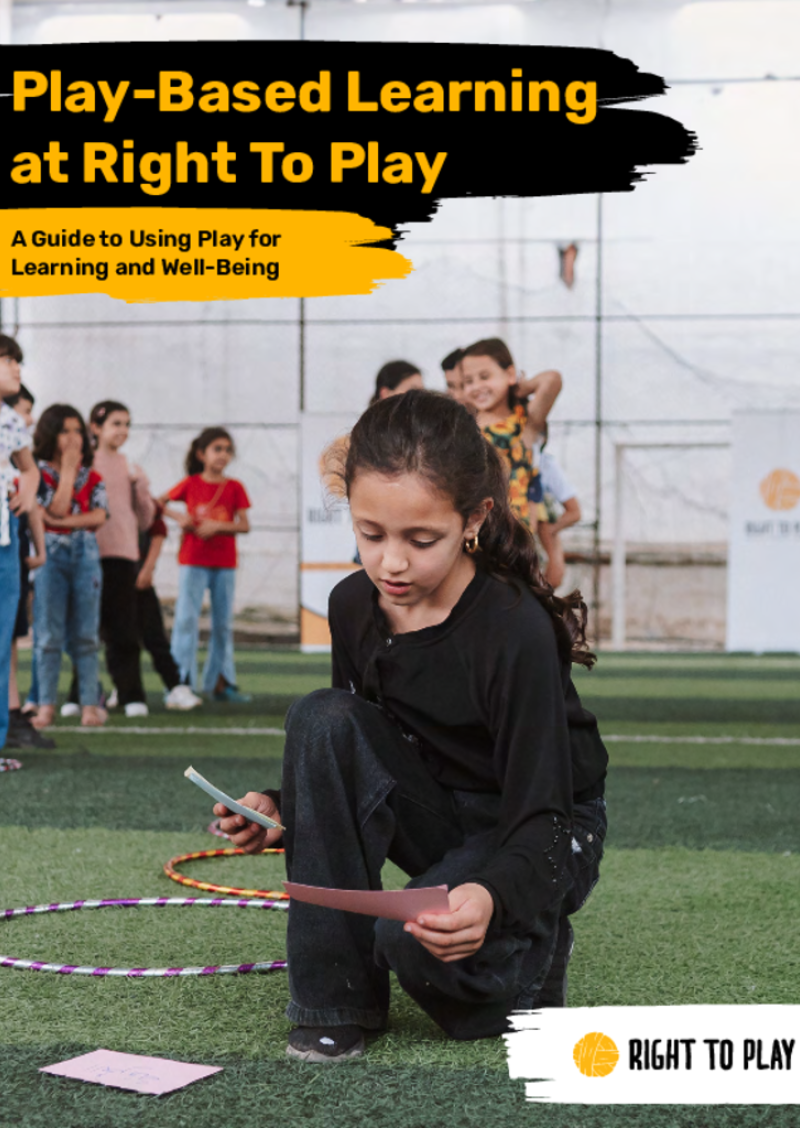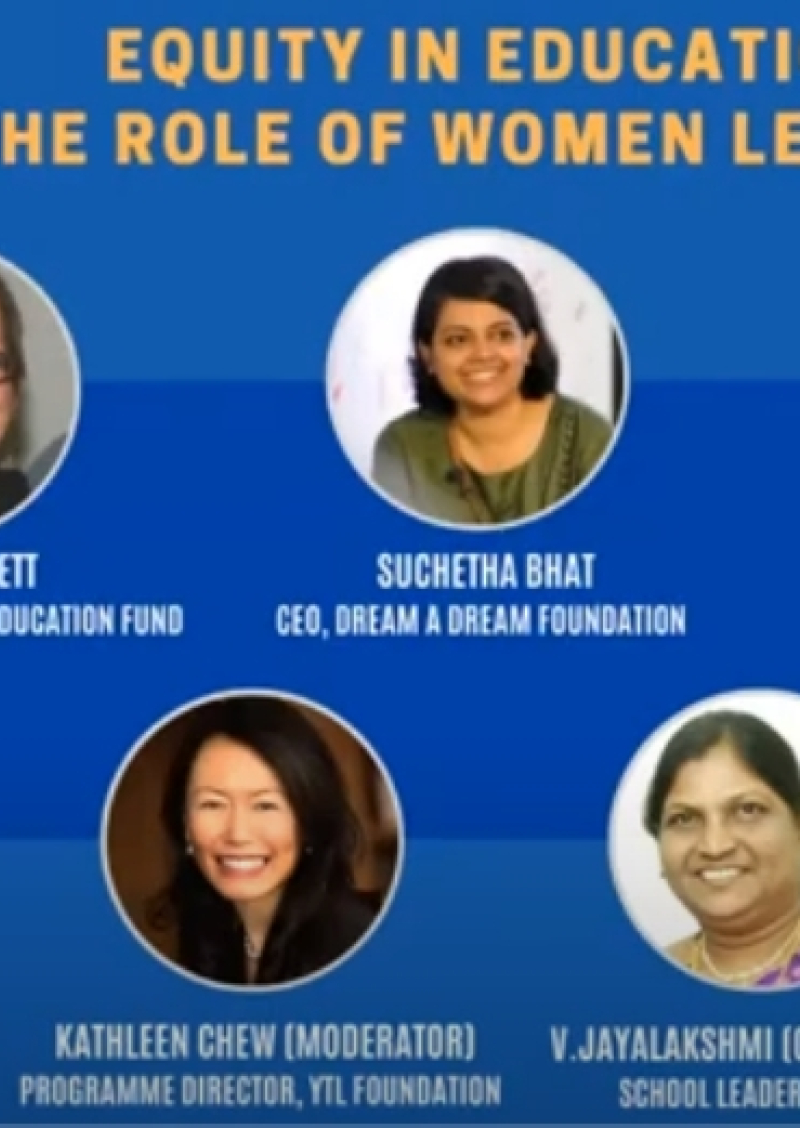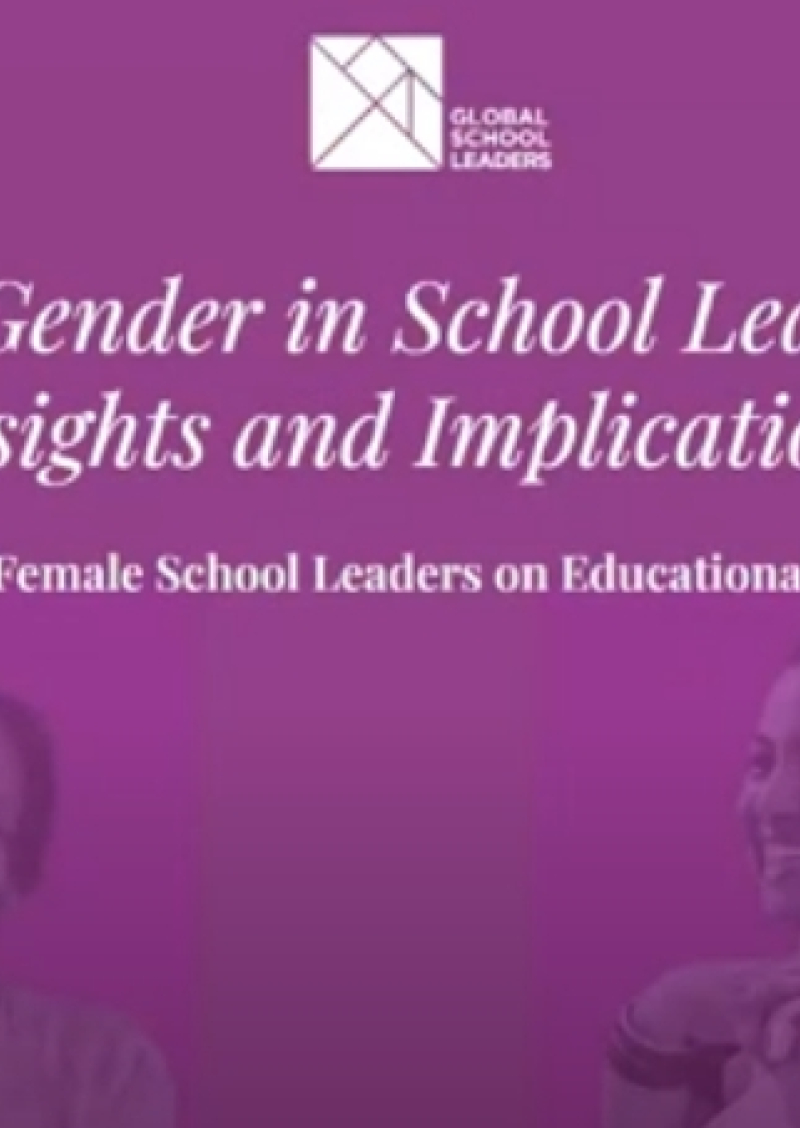مركز موارد المعلمين
عرض 1 - 20 من 26
FCA & TWB Distance Education & Digital Pedagogy Manual
This teacher training manual on Distance Education & Digital Pedagogy supports teachers and other education personnel’s continuous professional development in pedagogically high-quality distance education and remote learning especially in diverse, low resource contexts and is adaptable for use anywhere in the world.
The manual has been developed by Finn Church Aid (FCA) and Teachers Without Borders (TWB) Finland. The development of the training materials began already in 2020 as a response to the school lock-down situations caused by the COVID-19 pandemic, when teachers and learners quickly had to adapt to remote education modalities. Even though the pandemic has subsided, the need for quality distance education prevails. Ensuring the continuity of learning for all learners is critical in all contexts, even and especially during crisis situations.
The training manual consists of eight (8) training modules that can be used flexibly:
- Distance Education,
- Distance Education Modalities,
- Pedagogy of Digital and Distance Education,
- Psychosocial and Emotional Wellbeing,
- Learner-Centred Methods in Distance Education,
- Home Support – Parents and Caregivers’ Role and Collaboration,
- Inclusive Education, and
- Assessment and Evaluation.
The content design allows the trainer or facilitator to pick individual modules or sessions and adapt the training content according to the context and target group’s needs.
We hope you find it useful!
التعليم المتباين في سياقات النزوح دليل تيسير ورش العمل
في هذا الدليل، هناك مطالبات لدعم استكشاف المحتوى والتطبيق على السياق المحلي. هناك أيضًا نصائح لدعم المعلمين أثناء توفيرهم للمساحة والوقت للتعلم المهني في حياتهم المزدحمة والمجهدة في كثير من الأحيان. أخيرًا، يقدم هذا الدليل بعض النصائح فيما يتعلق بالجوانب الإلكترونية و/أو الجوانب التكنولوجية الأخرى لهذا التدريب.
يهدف مشروع التعلم الشامل عالي الجودة (QHL)، والذي تعد ورشة العمل وجهًا لوجه أحد عناصره، إلى إعداد المعلمين لتقديم دروس عالية الجودة تدعم التعلم الشامل للأطفال والشباب من خلفيات متنوعة (اللاجئين والمهاجرين و/ أو المواطن) داخل البلد المضيف وسياقات النزوح والأزمات. إنهم يعرّفون التعلم الشامل عالي الجودة بأنه ذلك الذي يهتم بما يلي: ● التطوير الأكاديمي والمعرفي وتنمية الهوية، ● التعلم الاجتماعي والعاطفي، و ● الرفاه العقلي/النفسي الاجتماعي والجسدي والذي يوفر: ● تجارب مدرسية إيجابية، ● مشاعر الانتماء والانتماء السلامة، ● النمو والتطور، و ● نتائج عادلة لجميع المتعلمين.
مقدمة في التربية القائمة على تعزيز نقاط القوة في سياقات النزوح دليل تيسير ورش العمل
يهدف هذا الدليل إلى دعم تقديم مجموعة من أربع ورش عمل تمهيدية حول موضوع دعم التربية القائمة على تعزيز نقاط القوة في سياقات الأزمات من خلال تنفيذ أدوات وأنشطة التدريس القائم على تعزيز نقاط القوة ومن خلال الحفاظ على مساحات تعليمية آمنة ومأمونة.
ورش العمل هي نتيجة المساهمات الثاقبة لفريق ملتزم من المعلمين والمعلمين من كينيا ولبنان والنيجر.
أصول علم التّربيّة القائمة على تعزيز نقاط القوّة لتعلّم شامل عالي الجودة
تمّ تصميم هذه الدّورة التّدريبيّة المفتوحة - ذاتيّة الوتيرة، والمعتمدة على أصول التّربيّة القائمة على (نقاط القوّة)؛ للتّعلّم الشّامل عالي الجودة - من قِبَل المعلّمين لزملائهم، وخاصًّة أولئك الّذين يعملون مع المتعلّمين اللاجئين، والضّعفاء. والهدف منها هو تقديم لمحةٍ عامّةٍ عن المصطلحات، والمفاهيم، والممارسات الرّئيسة المتعلّقة بالأساليب التّربوية القائمة على (نقاط القوّة).
سيكون لدى المعلّمين الّذين يُكمِلون هذه الدّورة التّدريبيّة القصيرة عبر الإنترنت، القدرة على ما يلي:
- اكتساب فَهْم عمليّ لماهيّة (طبيعة) طرق التّربيّة القائمة على نقاط القوّة، وأسباب أهمّيتها.
- القدرة على تحديد الطّرق الّتي يمكن من خلالها تطبيق أساليب التّربية القائمة على نقاط القوّة في الفصل الدّراسيّ.
- التّأكد من إمكانيّة تطبيق أصول علم التّربيّة القائمة على نقاط القوّة في سياق عملهم.
سوف تستغرق من 3-4 ساعات، في المتوسط ، لإكمال هذه الدورة. وسيتمّ إصدار شهادة مشاركة عند الانتهاء بنجاح. شكرًا لك على اهتمامك والتزامك بالتّعلّم المهنيّ والتّعليم!
يجري حاليًّا تطوير دليلٍ؛ لاستخدامه في حال عدم توافر الإنترنيت، كأداةٍ موازيةٍ للتّعرّف على طرق التّربيّة القائمة على نقاط القوّة. يُرجَى الاتصال بـ jkasper@ceinternational1892.org ؛ لمناقشة تجربة هذه المادّة الإضافيّة
مُقدِّمة في التّعلّم الاجتماعيّ والعاطفيّ والدّعم النّفسيّ الاجتماعيّ من أجل التّعلّم الشّامل عالي الجودة
تم تطوير هذه الدورة التدريبية عبر الإنترنت ، والتي تُرجمت إلى اللغة العربية ، بناءً على مواد ورشة العمل المصممة بواسطة زملاء مشروع التعلم الشامل عالي الجودة
(QHL) في النيجر. يقدم هذا المساق التعلم الاجتماعي والعاطفي (SEL) ، والدعم النفسي الاجتماعي (PSS) ، وأماكن التعلم الآمنة والشاملة. هذا هو مصدر تعليمي ذاتي
(غير مُيسَّر). المواد المترجمة شبيهة جدًا بالنسخة الإنجليزية.
دمج التّعلّم العاطفي والدّعم النفسي الاجتماعي في دروس التّعلّم الشامل العالي الجودة
دمج التّعلّم العاطفيّ الاجتماعيّ SEL والدّعم النّفسيّ الاجتماعيّ PSS في دروس التّعلّم الشّامل عالي الجودة
تمّ تصميم هذه الدّورة التّدريبيّة المفتوحة - ذاتيّة الوتيرة، والّتي تقوم على دمج (PSS) و (SEL) في الدّروس من أجل التّعلّم الشّامل عالي الجودة - من قِبَل فريق من المعلّمين الّذين يعملون مع المتعلّمين اللاجئين، والضّعفاء في جميع أنحاء لبنان.
وتهدف إلى البناء على ما تمّ تعلّمه مسّبقًا فيما يتعلّق بالتّعلّم الاجتماعيّ والعاطفيّ (SEL)، والدّعم النّفسيّ الاجتماعيّ (PSS)، وذلك لتزويد المعلّمين بالثّقة؛ لتقييم الأنشطة بشكلٍ نقديّ، وتكييّفها مع سياقهم المحليّ، وتقييم مدى تأثيرها على تعلّم الطّلاب ورفاههم.
سيكون لدى المعلّمين الّذين يُكمِلون هذه الدّورة التّدريبيّة القدرة على:
- تحديد مفهوم (PSS) و (SEL).
- دمج (PSS) و (SEL) في خطط الدّروس.
- خلق مساحات آمنة للمتعلّمين النّازحين، واللاجئين، وغيرهم من الطّلاب الضّعفاء.
- التّفكير في الأدوات وطرق التّعليم عند تنفيذ أنشطة (PSS) و (SEL).
- تقييم تكيُّفها، ومدى قدرتها على تنفيذ أنشطة (PSS) و (SEL).
سوف تستغرق من 8-10 ساعة، في المتوسط ، لإكمال هذه الدورة.
Ficha para equipos pedagógicos - Acompañar a niñas y niños en situación de emergencia
Este recurso para docentes ofrece ejemplos y materiales adicionales para apoyar a los educadores que trabajan con niños de parvulario en situaciones de emergencia. Las comunidades pueden enfrentar momentos de crisis los cuales afectan a los niños en sus contextos familiares, educativos y comunitarios. La guía ayuda a identificar estos efectos adversos y proporciona apoyo oportuno para mitigar el impacto en los niños, uno de los grupos más vulnerables en estas situaciones.
STEAM +género - Una propuesta para fortalecer la educación inicial con equidad
Esta guía, creada en colaboración entre el Ministerio de Educación de Colombia y la Fundación Siemens Stiftung, con apoyo de la OEA, busca integrar el enfoque STEAM con perspectiva de género en la práctica docente. Centrada en los sistemas educativos de Colombia y Chile, promueve la equidad de género desde la primera infancia, fomentando la participación de niñas y niños en ciencia y tecnología. A través de experiencias educativas y políticas, se pretende reducir estereotipos de género y promover una educación inclusiva y de calidad.
Estrategias para el Aprendizaje Socioemocional desde el Currículum Nacional
Este manual ofrece a los docentes el contexto necesario para implementar el aprendizaje socioemocional en el aula. Proporciona una base teórica y se alinea con el currículum nacional chileno. Incluye ejemplos de actividades que pueden desarrollarse en diversas materias y espacios de la vida escolar, abarcando desde la educación primaria hasta la secundaria. El objetivo es facilitar la integración del aprendizaje socioemocional en las prácticas educativas diarias, promoviendo un ambiente escolar más inclusivo y comprensivo.
Experimento 3+ módulo: Salud - Guía de trabajo para docentes de preescolar
Esta guía, elaborada en el marco de un proyecto con la Oficina de la UNESCO en México para desarrollar la enseñanza de la ciencia a nivel preescolar, propone actividades y experiencias científicas para realizar en el aula. Incluye medidas de seguridad que se deben observar y demás instrucciones necesarias. Este módulo se centra en la temática de la salud (conocimiento del cuerpo humano, etc...).
Experimento 3+ módulo: Medio Ambiente - Guía de trabajo para docentes de preescolar
Esta guía, elaborada en el marco de un proyecto con la Oficina de la UNESCO en México para desarrollar la enseñanza de la ciencia a nivel preescolar, propone actividades y experiencias científicas para realizar en el aula. Incluye medidas de seguridad que se deben observar y demás instrucciones necesarias. Este módulo se centra en la temática del medio ambiente (ciclo del agua, contaminación, etc.…).
Experimento 3+ módulo: Energía - Guía de trabajo para docentes de preescolar
Esta guía, elaborada en el marco de un proyecto con la Oficina de la UNESCO en México para desarrollar la enseñanza de la ciencia a nivel preescolar, propone actividades y experiencias científicas para realizar en el aula. Incluye medidas de seguridad que se deben observar y demás instrucciones necesarias. Este módulo se centra en la temática de la energía (producción de energía, objetos conductores etc.…).
A Guide to Using Play for Learning and Well-Being
Right To Play uses a variety of approaches to play to support children’s learning, development, and well-being, including sports, music, theatre, art, and play-based learning.
This document focuses on the play-based learning methodology and approach, and how it can be used for learning and development goals related to Right To Play’s core programmatic areas: early childhood care and education, primary education, gender equality and girls’ well-being, and psycho-social support.
Play & resilience: a toolkit for teachers, caregivers, and other stakeholders
Play is an easy, natural and universal practice that builds resilience. Play comes naturally to all children- and is a seemingly simple and light-hearted phenomenon. The power of play as a pathway to building resilience needs to be leveraged to provide children with the opportunity to further explore play in their home and school environments.
This toolkit is therefore premised on the objectives to build the capacity of various stakeholders such as caregivers/teachers, school managers, curriculum planners and policy makers who are key actors in the process of growth and development of children. It is also aimed at equipping these stakeholders with the knowledge and pedagogical skills to translate research, policy and curriculum to practical knowledge and activities for children in the school environment. The toolkit offers directions for facilitators who will be working with caregivers/teachers using the materials and resources provided and other relevant materials available in an environment where it will be used.
A Teacher's Guide for Arts, Music and Drama in Africa
Art, music and drama have had a pivotal role in the livelihood of human beings. This is clear by the wealth of literature, architecture, fine art, theater and music that define human past, present and future. The inherent creative ability and a yearning to express ourselves is what gives value to art, music and drama as companion components in human evolution.
This teacher's guide covers art, music, dance, drama, experiential learning, community engagement, and how to integrate these aspects into curriculum. Additionally, this document provides lesson plans for primary school students in these subject areas.
Pedagogies of Belonging: Educators Building Welcoming Communities in Settings of Conflict and Migration
What would it take to ensure that all young people have access to learning that enables them to feel a sense of belonging and prepares them to help build more peaceful and equitable futures? This is a question we have found educators in contexts of conflict and migration ask of themselves each day. And each day, in classrooms around the world, educators are acting in response to this question.
Educators are figuring out what to teach, ways to teach, and how to foster relationships of learning and belonging.
We learn from educators how they create space for dissent, for dialogue, for trust, for new identities, for future-building, and how they envision and build newly imagined and welcoming communities.
Pedagogies of belonging, featured in this book and in its title, emerge from these ways of thinking and acting by educators. We see across educators that what they teach, how they teach, and why they teach in the ways they do come together to enable all young people to feel a sense of belonging and prepare them to help build more peaceful and equitable futures.
This book is about educators and for educators. It is about the practices educators have developed to create welcoming communities in settings of conflict and migration. Each chapter is a “microportrait” of one educator who we have come to know by spending time in their classroom and school.
We focus on the why and the how of practices educators use. We show, through text and art, how educators learn about their students’ experiences, needs, and desires. We describe how educators develop practices to meet these learning and belonging goals. And we recognize how educators address struggles that necessarily arise in this work. We hope the practices give us each ideas to try out in our own classrooms, schools, and other educational sites.
Each microportrait is grounded in research about educator practices. Authors of the microportraits came to know the educators through research projects that included interviews, observations, and sometimes participatory methods. Each project was at least a few months and at times spanned many years. The microportraits include links to articles that can support deeper learning about the contexts and practices of the educators.
This book is a collective project, and we welcome your participation. The intention of this book is that it lives and grows to include more microportraits over time and more patterns of practices that may emerge. Please be in touch with suggestions, to share your experiences with the practices of these educators, or to contribute a microportrait to the collection.
Faire des manuels scolaires des outils de l'égalité entre les femmes et les hommes
Ce guide invite les enseignants à réfléchir aux inégalités de genre dans les manuels scolaires. Elle présente des bases légales et normatives sur lesquelles s’appuient cette question dans le cadre Français, des chronologies, infographies sur l’égalité de genre et l’élaboration des programmes. On y retrouve différents outils à destination des enseignants pour les accompagner au moment d’aborder ces sujets en classe dans différentes matières, ou plus largement dans la vie scolaire.
Equity in Education: The Role of Women Leaders
Global School Leadership Webinar featuring Kathy Bartlett, Suchetha Bhat, Olanrewaju Oniyitan, Kathleen Chew, and V. Jayalakshmi on the topic of Equity in Education: The Role of Women Leaders.
Role of Gender in School Leadership PART II: Impact of Female School Leaders on Educational Outcomes
Drawing from the 2024 Evidence Review on gender in school leadership (available here), the two-part webinar series “Role of Gender in School Leadership" aims to offer deep insights into effective strategies for fostering gender equity in educational leadership. Watch this webinar as practitioners, researchers and policymakers from the global education space unpack the potential of improving female representation in school leadership to enhance educational outcomes and foster inclusive learning environments. In this webinar Aashti Zaidi Hai talks to Eline Versluys, Sister Zeph, Franco Mosso, and Veronica Cabezas.
